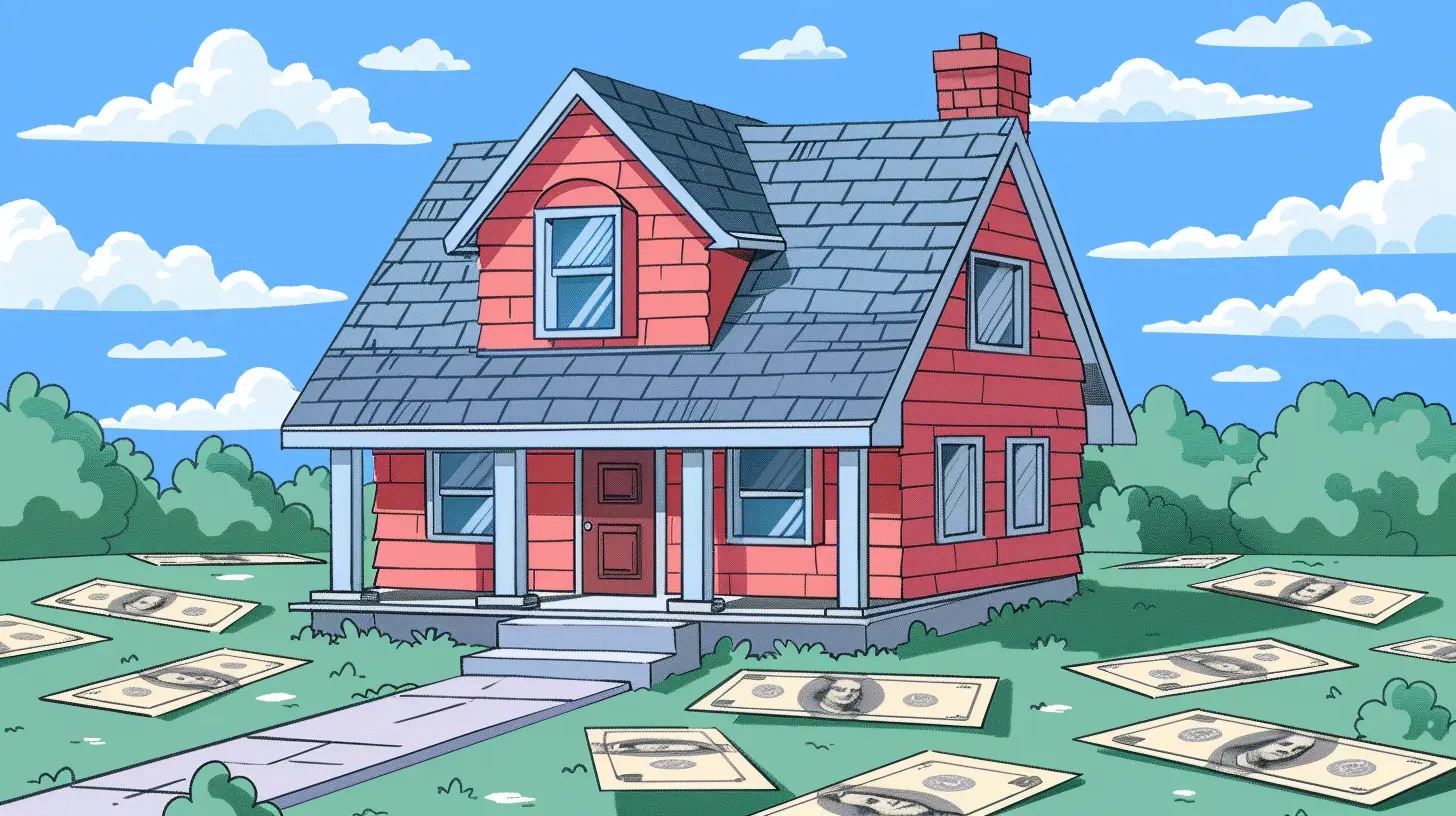How to Use Refinancing to Pay Off Your Mortgage Faster
22 October 2025
Owning a home is one of life’s greatest milestones, but let’s be real—paying off a mortgage can feel like an endless marathon. You pour money into monthly payments, and sometimes it seems like you’re barely scratching the surface. But what if there was a way to speed things up without hitting the jackpot? Refinancing might just be your golden ticket.
Think of refinancing as a refresh button for your mortgage—giving you an opportunity to reduce interest rates, change terms, and yes, pay off your home loan faster. Sounds good, right? Buckle up—we’re diving into how refinancing could help you shave years off your mortgage and save you money in the long run. 
What Is Refinancing, Exactly?
Before we dive into the hows, let’s tackle the what. Refinancing is when you replace your current mortgage with a new one. Essentially, you’re reworking your existing loan terms with your lender (or a new lender) to secure a better deal.Why do people refinance? Some do it to lower their interest rate. Others may refinance to switch from a variable rate to a fixed rate, shorten the loan term, or even cash out some equity. Whatever the reason, refinancing could help you take control of your mortgage and align it with your financial goals. 
Why Use Refinancing to Pay Off Your Mortgage Early?
Picture this: It’s a sunny Saturday morning, and you’re kicking back in the house you OWN. No mortgage payments are hanging over your head. Sounds dreamy, huh? By using refinancing smartly, you can turn that dream into reality sooner than you ever thought possible.Here are some top reasons refinancing can help you tear down those mortgage shackles:
1. Lower Interest Rates = More Principal Payments
When you secure a lower interest rate through refinancing, more of your payments go toward the loan principal rather than interest. That means you’re chipping away at the actual debt faster.
2. Shorter Loan Terms
Refinancing into, say, a 15-year loan instead of a 30-year one could drastically cut down the time it takes to pay off your home. Sure, your monthly payments might be higher, but the savings on interest over the life of the loan? Massive.
3. More Flexibility to Put Extra Toward Principal
By refinancing to a lower monthly payment, you free up cash flow to make additional payments on the principal. Over time, that extra effort snowballs into fewer payments and a faster payoff timeline. 
Step-by-Step Guide to Using Refinancing to Pay Off Your Mortgage Faster
Okay, so now you’re intrigued. But how does this all work? Let’s break it down into bite-sized steps:1. Review Your Current Mortgage
Take a look at the nitty-gritty details of your current mortgage. What’s your remaining balance? How many years are left? What’s your interest rate? Knowing where you stand is essential before you can figure out where to go.- Tip: Check if there are any prepayment penalties on your loan. Some lenders charge a fee for paying off your mortgage early, which could impact your refinancing plan.
2. Check the Current Market Interest Rates
Here’s the deal: Refinancing only makes sense if you can lock in a lower interest rate than what you currently have. Keep an eye on market trends. Rates fluctuate, so timing your refinance can save you big bucks.- Pro Tip: Even a small difference in interest rates—like 0.5%—could save you thousands in interest over the life of your loan.
3. Decide on a Shorter Loan Term
When refinancing, consider switching to a 15-year mortgage instead of sticking to a 30-year one. Yes, your monthly payment will be higher, but you’ll demolish your mortgage in record time. You’ll also save a ton of money in interest!- Example: If you currently have 20 years left on your mortgage, refinancing to a 15-year loan could cut five years off your timeline.
4. Shop Around for Lenders
Don’t just go with the first lender you come across—it’s worth shopping around. Compare interest rates, closing costs, and loan terms. Refinancing is a big decision, so take the time to find the best deal.- Remember: Even small differences in rates or fees can significantly impact your long-term savings.
5. Refinance, Then Pay Extra
Here’s where the magic happens. Once you lock in a better loan, use the extra cash you’re saving on monthly payments to make additional principal payments. Over time, those payments can add up and cut years off your mortgage. - Pro Tip: Even one extra payment per year can significantly reduce the length of your loan. 
Is Refinancing Always a Good Idea?
Hold up—before you jump in, refinancing isn’t a one-size-fits-all solution. It’s important to weigh the pros and cons for your specific situation.When Refinancing Makes Sense
- Interest rates have dropped significantly since you got your current loan.- You have good credit, giving you access to the best refinancing rates.
- You plan to stay in your home long enough to recoup the costs of refinancing.
- Your goal is to pay off your mortgage faster and save on interest.
When Refinancing Might Not Be Worth It
- Your current loan has high prepayment penalties.- You’re planning to sell your home soon.
- The closing costs of refinancing outweigh the potential savings.
- Your credit score isn’t in great shape (this could lead to higher interest rates).
A Quick Word on Closing Costs
Let’s talk about the elephant in the room—closing costs. Refinancing isn’t free, and these costs can sometimes add up to 2-5% of your loan amount. Examples include appraisal fees, title searches, and origination fees.But don’t worry—here’s the silver lining. If your goal is to pay off your mortgage faster, you’ll likely recoup these costs through interest savings relatively quickly. Just make sure to crunch the numbers before pulling the trigger.
Refinancing Alternatives to Pay Off Your Mortgage Faster
Not sure refinancing is the right move for you? No problem—there are other ways to pay off your mortgage early:1. Bi-Weekly Payments: Instead of making one monthly payment, split it into two bi-weekly payments. This small tweak adds up to one extra payment each year.
2. Lump-Sum Payments: Got a bonus or tax refund? Use it to pay down your principal.
3. Round Up Your Payments: If your monthly payment is $1,450, round it up to $1,500. That extra $50 might not seem like much, but over time, it makes a big difference.
Final Thoughts
Paying off your mortgage faster doesn’t have to be a pipe dream. With refinancing, you’ve got a powerful tool in your financial arsenal to make that happen. It’s like giving your mortgage a turbo boost—lower interest rates and shorter terms can help shave years off your loan and save you thousands of dollars along the way.Of course, refinancing isn’t for everyone, so weigh your options carefully. But if the numbers add up, it might just be the financial strategy that lets you hang up that “Mortgage-Free” banner on your front porch sooner than expected.
Remember, the sooner you’re debt-free, the sooner you can enjoy life with one less financial burden hanging over your head. Isn’t that worth considering?
all images in this post were generated using AI tools
Category:
RefinancingAuthor:

Cynthia Wilkins
Discussion
rate this article
1 comments
Aelith Schultz
What a fantastic guide! Refinancing can be such a powerful tool to accelerate mortgage payoff. It’s uplifting to think about reducing debt faster and enjoying financial freedom sooner. Cheers to smart financial choices and brighter tomorrows! 🌟🏡
November 3, 2025 at 12:25 PM

Cynthia Wilkins
Thank you for your kind words! I'm glad you found the guide helpful. Here’s to achieving financial freedom together! 🌟🏡


